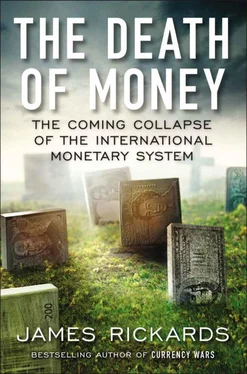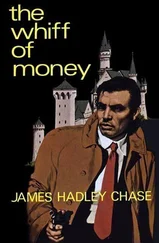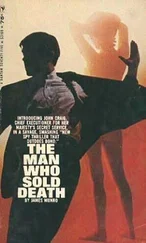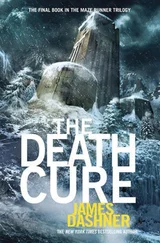———. “Trying to Save Europe, ‘Step by Step.’” Wall Street Journal, December 4, 2012, p. A17, http://online.wsj.com/news/articles/SB10001424127887323901604578157282337844170.
Kannan, Prakash, and Fritzi Köhler-Geib. “The Uncertainty Channel of Contagion.” IMF Working Paper no. WP/09/219, October 2009, http://www.imf.org/external/pubs/ft/wp/2009/wp09219.pdf.
“Kazakhstan—Two Decades of Global Initiatives.” First Magazine, http://www.firstmagazine.com/DownloadSpecialReportDetail.1225.ashx.
Khalifa, Sherif, Ousmane Seck, and Elwin Tobing. “Financial Wealth Effect: Evidence from Threshold Estimation.” Applied Economics Letters 18, no. 13 (2011), http://business.fullerton.edu/economics/skhalifa/publication13.pdf.
King, Mervyn. “Do We Need an International Monetary System?” Speech given at Stanford Institute for Economic Policy Research, March 11, 2011, http://www.bankofengland.co.uk/publications/Documents/speeches/2011/speech480.pdf.
Krugman, Paul. “The Myth of Asia’s Miracle.” Foreign Affairs, November–December 1994, p. 62, http://www.pairault.fr/documents/lecture3s2009.pdf.
———. “Sticky Wages and the Macro Story.” New York Times, July 22, 2012, http://krugman.blogs.nytimes.com/2012/07/22/sticky-wages-and-the-macro-story.
Lagerspetz, Eerik. “Money as a Social Contract.” Theory and Decision 17, no. 1 (July 1984), pp. 1–9.
Lee, Il Houng, Murtaza Syed, and Liu Xueyan. “Is China Over-Investing and Does It Matter?” IMF Working Paper no. WP/12/277, November 2012, http://www.imf.org/external/pubs/cat/longres.aspx?sk=40121.0.
Lee, Il Houng, Xu Qingjun, and Murtaza Syed. “China’s Demography and Its Implications.” IMF Working Paper no. WP/13/82, March 28, 2013, http://www.imf.org/external/pubs/cat/longres.aspx?sk=40446.0.
Lie, Eric. “On the Timing of CEO Stock Option Awards.” Management Science 51, no. 5 (May 2005).
Ludvigson, Sydney, and Charles Steindel. “How Important Is the Stock Market Effect on Consumption?” FRBNY Economic Policy Review, July 1990, http://ftp.ny.frb.org/research/epr/99v05n2/9907ludv.pdf.
McAfee Roundstone Professional Services and McAfee Labs. “Global Energy Cyberattacks: ‘Night Dragon,’” February 10, 2011, http://www.mcafee.com/us/resources/white-papers/wp-global-energy-cyberattacks-night-dragon.pdf.
McCulley, Paul, and Zoltan Pozsar. “Helicopter Money: Or How I Stopped Worrying and Love Fiscal-Monetary Cooperation.” GIC Global Society of Fellows, January 7, 2013, http://www.interdependence.org/wp-content/uploads/2013/01/Helicopter_Money_Final1.pdf.
Macdonald, Alistair, Paul Vieira, and Will Connors. “Chinese Fly Cash West, by the Suitcase.” Wall Street Journal, January 2, 2013, http://online.wsj.com/news/articles/SB10001424127887323635504578213933647167020.
McGregor, James. “China’s Drive for ‘Indigenous Innovation’: A Web of Industrial Policies,” July 28, 2010, http://www.uschamber.com/sites/default/files/reports/100728chinareport_0.pdf.
Maclachlan, Fiona. “Max Weber and the State Theory of Money.” Working paper, http://home.manhattan.edu/~fiona.maclachlan/maclachlan26july03.htm.
Makin, John H. “Inflation Is Better Than Deflation.” American Enterprise Institute, March 2009, http://www.aei.org/article/economics/fiscal-policy/inflation-is-better-than-deflation.
———. “Trillion-Dollar Deficits Are Sustainable for Now, Unfortunately.” American Enterprise Institute, December 13, 2012, http://www.aei.org/outloook/trillion-dollar-deficits-are-sustainable-for-now-unfortunately.
Mandiant. “APT1 Exposing One of China’s Cyber Espionage Units,” 2013, Mandiant Intelligence Center Report, http://intelresport.mandiant.com.
Martin, Michael F. “China’s Sovereign Wealth Fund.” Congressional Research Service, January 22, 2008, http://www.fas.org/sgp/crs/row/RL34337.pdf.
Merton, Robert K. “The Self-Fulfilling Prophecy.” Antioch Review 8, no. 2 (Summer 1948), pp. 193–210.
Milgram, Stanley. “Behavioral Study of Obedience.” Journal of Abnormal Social Psychology (1963).
Minder, Ralph. “Car Factories Offer Hope for Spanish Industry and Workers.” New York Times , December 28, 2012, p. B1, http://www.nytimes.com/2012/12/28/business/global/car-factories-offer-hope-for-spanish-industry-and-workers.html?pagewanted=all.
“Money: DeGaulle v. the Dollar.” Time , February 12, 1965, http://content.time.com/time/magazine/article/0,9171,840572,00.html.
Mundell, Robert A. “A Theory of Optimum Currency Areas.” American Economic Review 51, no. 4 (September 1961), pp. 657–65, esp. 659.
Newman, Mark. “Power Laws, Pareto Distributions and Zipf’s Law.” Contemporary Physics 46 (September 2005), pp. 323–51.
Nixon, Richard M. Address to the Nation Outlining a New Economic Policy, August 15, 1971, http://www.presidency.ucsb.edu/ws/index.php?pid=3115#axzz1LXd02JEK.
O’Neill, Jim. “Building Better Global Economic BRICs.” Goldman Sachs, Global Economics Paper no. 66, November 30, 2001, http://www.goldmansachs.com/our-thinking/archive/archive-pdfs/build-better-brics.pdf.
Patterson, Scott, Jenny Strasburg, and Jacob Bunge. “Knight Upgrade Triggered Old Trading System, Big Losses.” Wall Street Journal, August 14, 2012, http://online.wsj.com/news/articles/SB10000872396390444318104577589694289838100.
Pei, Minxin. “China’s Troubled Bourbons.” Project Syndicate, October 31, 2012, www.project-syndicate.org.
Pettis, Michael. “The IMF on Overinvestment.” EconoMonitor, December 28, 2012, http://www.economonitor.com/blog/2012/12/the-imf-on-overinvestment/.
Poteshman, Allen M. “Unusual Option Market Activity and the Terrorist Attacks of September 11, 2001.” Journal of Business 79, no. 4 (July 2006), http://econpapers.repec.org/article/ucpjnlbus/v_3a79_3ay_3a2006_3ai_3a4_3ap_3a1703-1726.htm.
Pufeng, Major General Wang. “The Challenge of Information Warfare.” China Military Science, Spring 1995, http://www.fas.org/irp/world/china/docs/iw_mg_wang.htm.
Reinhart, Carmen M., and Kenneth S. Rogoff. “Growth in a Time of Debt.” National Bureau of Economic Research, Working Paper no. 15639, January 2010, http://www.nber.org/papers/w15639.
Reinhart, Carmen M., and M. Belen Sbrancia. “The Liquidation of Government Debt.” National Bureau of Economic Research, Working Paper no. 16893, March 2011, http://www.nber.org/papers/w16893.
Rickards, James G. “A New Risk Management Model for Wall Street.” Journal of Enterprise Risk Management (March 2009), pp. 20–24.
———. “Keynesianism, Monetarism and Complexity.” Reuters Rolfe Winkler Capital Jungle Blog, January 7, 2010, http://blogs.reuters.com/rolfe-winkler/2010/01/07/keynesianism-monetarism-and-complexity.
Romer, Christina A. “The Debate That’s Muting the Fed’s Response.” New York Times, February 26, 2011, http://www.nytimes.com/2011/02/27/business/27view.html.
Romer, Christina A., and Jared Bernstein. “The Job Impact of the American Recovery and Reinvestment Plan.” Council of Economic Advisers, January 9, 2009.
Rosenberg, Matthew. “An Afghan Mystery: Why Are Large Shipments of Gold Leaving the Country?” New York Times, December 15, 2012, http://www.nytimes.com/2012/12/16/world/asia/as-gold-is-spirited-out-of-afghanistan-officials-wonder-why.html.
Scheinkman, José A., and Michael Woodford. “Self-Organized Criticality and Economic Fluctuations.” American Economic Review 84, no. 2 (May 1994), pp. 417–21.
Schneider, Howard. “As Chinese Capital Moves Abroad, Europe Offers an Open Door.” Washington Post, February 26, 2013, http://articles.washingtonpost.com/2013-02-26/business/37297545_1_direct-investment-chinese-investors-rhodium-group.
Читать дальше











